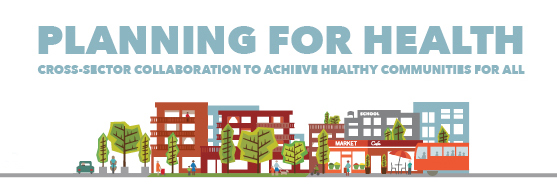Planning for Health Event in Riverside
By Richard Rojas
On August 21, 2017, I had the privilege to attend the Planning for Health event as a representative of the APA Los Angeles Section Board. The event was hosted by the APA California Chapter, Planners4Health Initiative and California Chronic Disease Prevention project and welcomed over 100 planning and public health professionals from across Southern California to discuss cross-sector collaboration to achieve healthy communities.
One of the highlights of the event was a presentation from Manual Pastor, PhD, Professor of Sociology and American Studies & Ethnicity at the University of Southern California. Professor Pastor illuminated some of the demographic changes underway in California and the Nation that have impacted our ability to consider public health equity. In particular, he emphasized the need to develop greater understanding and appreciation of our differences in ethnicity (white, non-white) and age (boomers, millennials) in order to improve conditions for everyone. In his words, “equity is not about spreading resources, it is about putting them where they are needed.”
In addition to showcasing lessons learned from ongoing efforts across Southern California to promote healthy communities, the event invited guest panelists to share specific strategies to integrate health and equity/environmental justice into the development and implementation of local and regional plans, policies and practices. Resources available include:
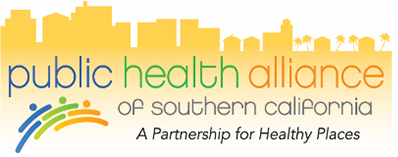
The purpose of this Health Disadvantage Index (HDI) is to prioritize public and private investments, resources and programs. HDI includes diverse non-medical economic, social, political and environmental factors that influence physical and cognitive function, behavior and disease.
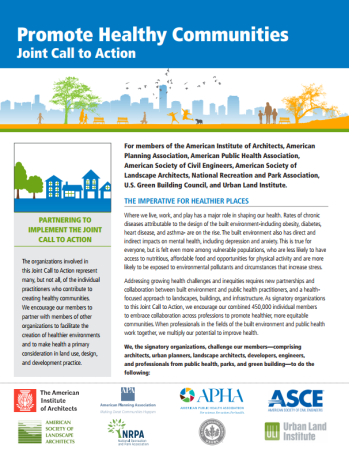
From the Urban Sustainability Directors Network (USDN), this guide is aimed at local government and outlines a framework for designing and implementing a community-driven, equitable climate preparedness planning process.
From the Health Equity Institute at San Francisco State University, this colorful handout provides an overview of health equity intended for all audiences.
A brief memo prepared for members of the American Institute of Architects, American Planning Association, American Public Health Association, American Society of Civil Engineers, American Society of Landscape Architects, National Recreation and Park Association, U.S. Green Building Council, and Urban Land Institute.
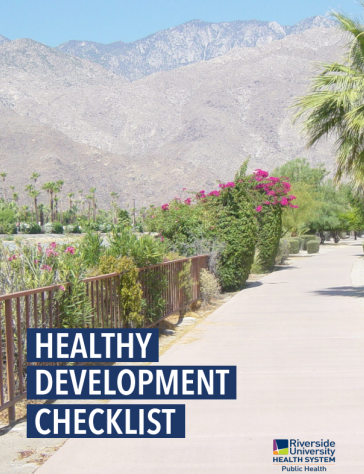
The Healthy Development Checklist was developed to provide criteria for healthy development practices in the Inland Empire. It is intended to be used as a tool to judge the overall health performance and supportiveness of new development projects.
And of course, networking was highly encouraged during the event and after. For those interested in following up with the participants, many who are on the leading edge of this work, here is their contact information.
The lessons, tools, and contacts I discovered at the event have broadened my understanding and appreciation of the numerous allies that we planners have with this work. While progress is being made, there are still considerable planning and public health challenges in many of the communities we serve. I am hopeful that continued education, data collection, understanding and collaboration will enable our coalitions to empower our communities and achieve the improvements needed.
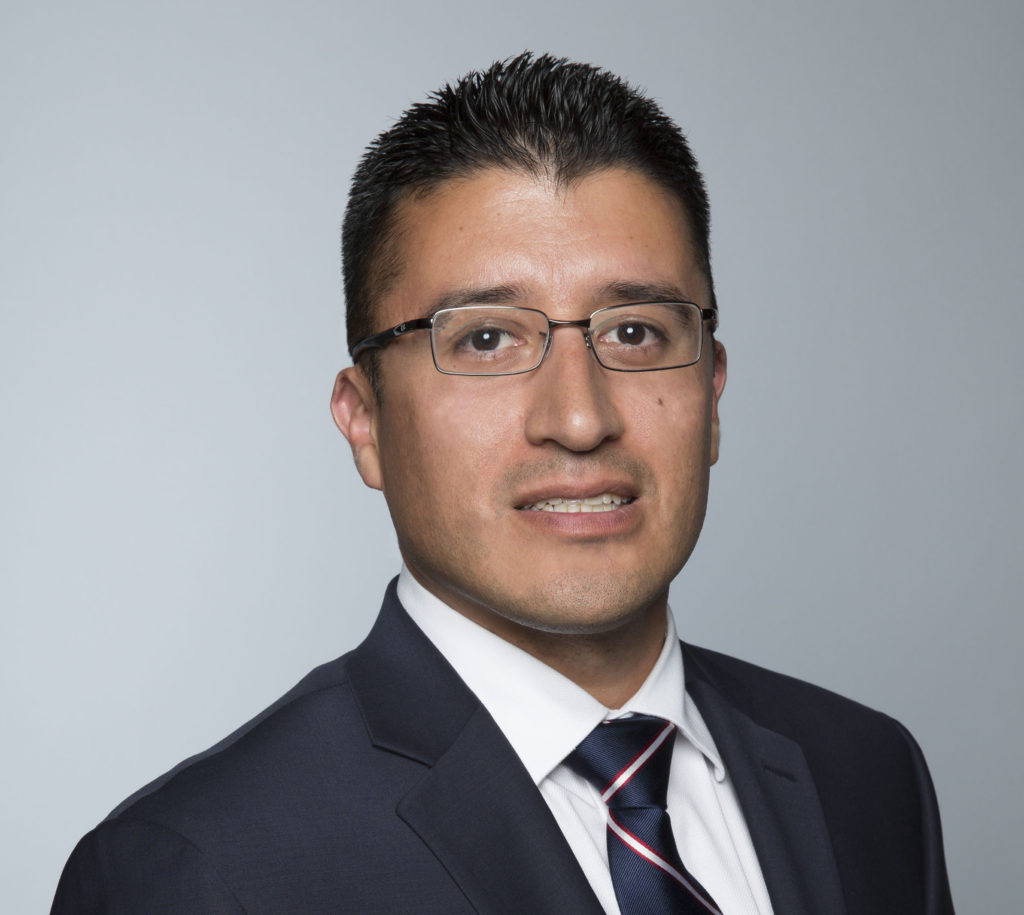 Richard A. Rojas, Jr., AICP, is a Senior Planner at the City of Carson where he supervises the Planning Division. He has more than ten years of experience in development review, preparation and maintenance of policy plans and development of architectural, site design and land use regulations for cities. He is motivated to utilize planning to address some of our most pressing environmental and social issues of our time including climate change, pollution, and housing.
Richard A. Rojas, Jr., AICP, is a Senior Planner at the City of Carson where he supervises the Planning Division. He has more than ten years of experience in development review, preparation and maintenance of policy plans and development of architectural, site design and land use regulations for cities. He is motivated to utilize planning to address some of our most pressing environmental and social issues of our time including climate change, pollution, and housing.
Richard is an active member of APA Los Angeles as the Co-Director of Professional Development. In 2016, he developed the APA Los Angeles Leadership Program. He is also active in the Urban Land Institute.
Richard has a Masters in City and Regional Planning from Cal Poly San Luis Obispo and a BA in Environmental Studies from UC Santa Barbara. In his free time, Richard enjoys the outdoors with his wife and two children.
https://www.linkedin.com/in/richardrojas/

